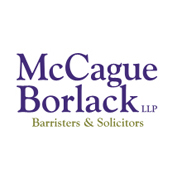By Martin Smith
Recently in Reotech Construction Ltd. v. Snider, 2022 BCSC 317 the BC Supreme Court determined that CERB payments should be deducted from an ex-employee's damage award for wrongful dismissal.
Background
Dean Snider began working for Reotech as a general construction labourer in early February of 2018. Like many Canadians, he was temporarily laid off in March of 2020 at the onset of the Covid-19 pandemic. He was never recalled back to work and his employer later paid him two weeks' salary as compensation for terminating his employment, on a without cause basis.
Mr. Snider commenced a small claims action against his former employer seeking $35,000 in damages, including damages for five months' reasonable notice. Further, he pleaded that there should be no setoff for any amounts he received under the Canada Emergency Response Benefit, under which he received $9,000.
The trial judge found that Reotech terminated Mr. Snider without cause and notice and that the reasonable notice period was four and a half months. Justice Prov declined to deduct his CERB payments from the award.
Appeal
The court found that CERB payments should be deducted from the damages award for wrongful dismissal... |
On appeal to the British Columbia Supreme Court, the court relied on two judicial precedents to determine that the trial judge had erred when he declined to deduct Mr. Snider's CERB payments from the damages award. The court found that CERB payments should be deducted from the damages award for wrongful dismissal based on the following reasons:
- If the CERB payments are not deducted, the plaintiff would be in a better position than he would have been if there had been no breach of the employment contract.
- But for his dismissal, Mr. Snider would not have received the benefit of the CERB payments. The nature of the benefit was an indemnity for the wage loss caused by the employer's breach of contract.
- CERB payments are not a form of private insurance, and the employee did not contribute to obtaining the benefit by paying for it directly or indirectly.
- There is no evidence that the plaintiff would be required to repay the CERB.
- CERB is a collateral benefit or a benefit that flows to the plaintiff and is connected to the defendant's breach. Collateral benefits are considered compensating advantages that justify a deduction from a damage award when the advantage:
- would not have accrued to the plaintiff if the breach had not occurred;
- was intended to indemnify the plaintiff for the sort of loss resulting from the breach.
Outcome
The Reotech decision offers some clarity to the deductibility of CERB payment from damages awards; a topic that has been inconsistent since the introduction of the benefit. Employers should make note of this case as a reminder that courts will treat CERB and other collateral benefits differently from private insurance benefits, as considered by the Supreme Court in Sylvester, when calculating damages for wrongful dismissal.


